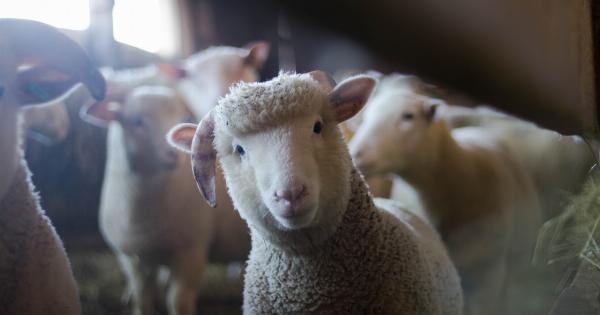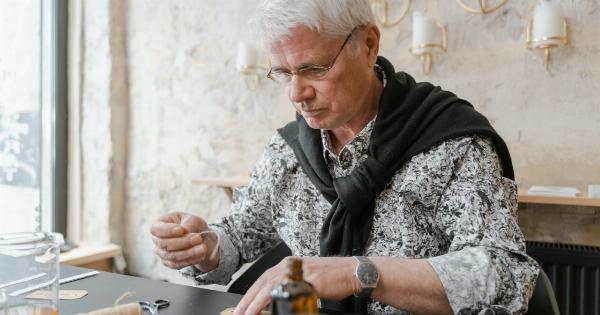Fragrances have been an integral part of human civilization for thousands of years. They have not only been used for personal adornment, but also as a means of communication.
From perfumes to incense, scents have played a significant role in various cultures, religions, and societies. In this article, we will explore the fascinating world of fragrances and understand how they have become our means of communication.
The power of scent in history
Ancient civilizations such as the Egyptians, Mesopotamians, and Greeks recognized the power of scent in their daily lives. Fragrant oils and incense were used in religious rituals, as offerings to deities, and to mask unpleasant odors.
These scents were not only believed to have spiritual significance but were also used to communicate with the supernatural.
In ancient Egypt, perfumes were considered a luxury and were used by both men and women. The use of fragrances was closely intertwined with their religious beliefs and practices.
It was believed that the gods enjoyed pleasant smells and that these scents would guide the souls of the deceased to the afterlife.
In Mesopotamia, scent played a crucial role in religious ceremonies and offerings. The Babylonians and Assyrians used various types of incense for worship, particularly during important festivals and rituals.
The burning of incense was also believed to ward off evil spirits and bring good fortune.
In ancient Greece, perfumes and scented oils were not only used for religious purposes but also as a form of personal adornment. It was believed that the right scent could enhance one’s attractiveness and make them more desirable.
Perfumes were also used to differentiate between social classes and were often associated with luxury and wealth.
The science behind fragrances
While the historical significance of fragrances is evident, the science behind them is equally fascinating. Our sense of smell is closely linked to our emotions and memories.
The olfactory system, which is responsible for our sense of smell, is directly connected to the limbic system in our brain—the part that controls emotions, behavior, and memory.
When we smell a particular scent, it triggers a cascade of reactions in our brain, evoking specific emotions and memories associated with that smell.
This is why certain smells can transport us back to a specific moment or remind us of a person or a place. Fragrances have the power to evoke emotions and create lasting impressions.
Perfumers and fragrance experts have long studied the art of scent composition. The composition of a fragrance involves combining different aromas and ingredients to create a specific scent profile.
These scents can be classified into various categories, such as floral, oriental, woody, or citrus, depending on the combination of ingredients used.
Fragrances as a means of personal expression
In today’s modern world, fragrances have become more than just perfumes or scented products. They have become a means of personal expression and identity. The scent we choose to wear can say a lot about our personality, mood, and style.
Just like we carefully select our outfits or accessories to reflect our personal style, choosing a fragrance is an equally important decision.
Whether it’s a fresh and invigorating scent for a day at the office or a warm and sensual fragrance for a romantic evening, our choice of fragrance can convey a lot about who we are and how we want to be perceived by others.
The social impact of fragrances
Beyond personal expression, fragrances also have a significant social impact. They can evoke certain emotions and create associations that affect our interactions with others.
Have you ever smelled a particular fragrance and immediately associated it with a person or a memory? This is because scent has the power to create lasting impressions and trigger emotional responses.
In a social context, fragrances can be used to attract or repel others. Certain scents are believed to be more alluring and can make us more attractive to others.
On the other hand, unpleasant or overpowering smells can create a barrier and push people away. Fragrances can also be used to create a sense of belonging or to differentiate ourselves from others. A signature scent can become a part of our personal brand and be associated with our presence.
The cultural significance of fragrances
Throughout history, different cultures have had their unique relationship with fragrances. In some cultures, certain scents hold religious or spiritual significance, while in others, they are deeply ingrained in traditional practices and customs.
In India, for example, the use of incense is an integral part of religious ceremonies and rituals. The scent of incense is believed to purify the air and create a spiritually uplifting atmosphere.
Similarly, in Japan, the art of appreciating fragrances through the practice of Kodo, or “the way of incense,” is a cultural tradition that dates back centuries.
In the Middle East, fragrances such as Oud and Bakhoor are deeply embedded in the culture. These scents are not only used for personal adornment but are also associated with hospitality and generosity.
The tradition of offering guests a warm and welcoming fragrance is a common practice in many Middle Eastern households.
The cultural significance of fragrances highlights their importance in our social fabric and the way they shape our daily lives.
The future of fragrances and communication
As technology advances, the world of fragrances is also evolving. With the emergence of virtual reality and augmented reality, it is now possible to enhance the olfactory experience even further.
Imagine being able to experience the scent of a field of flowers or the aroma of a bustling marketplace through virtual means.
Fragrances will continue to be a means of communication, both on a personal and societal level. They have the power to evoke emotions, create connections, and leave a lasting impression.
Whether it’s through a signature scent or a soothing aroma, fragrances will always be an integral part of human communication.
In conclusion
Fragrances have transcended time and culture and have become our means of communication. From ancient civilizations to the modern world, scents have played a significant role in various aspects of human life.
They evoke emotions, remind us of cherished memories, and allow us to express our identity. Fragrances have the power to create lasting impressions, attract or repel others, and shape our interactions. As we move forward, the world of fragrances will continue to evolve, but their significance in our lives will always remain.






























